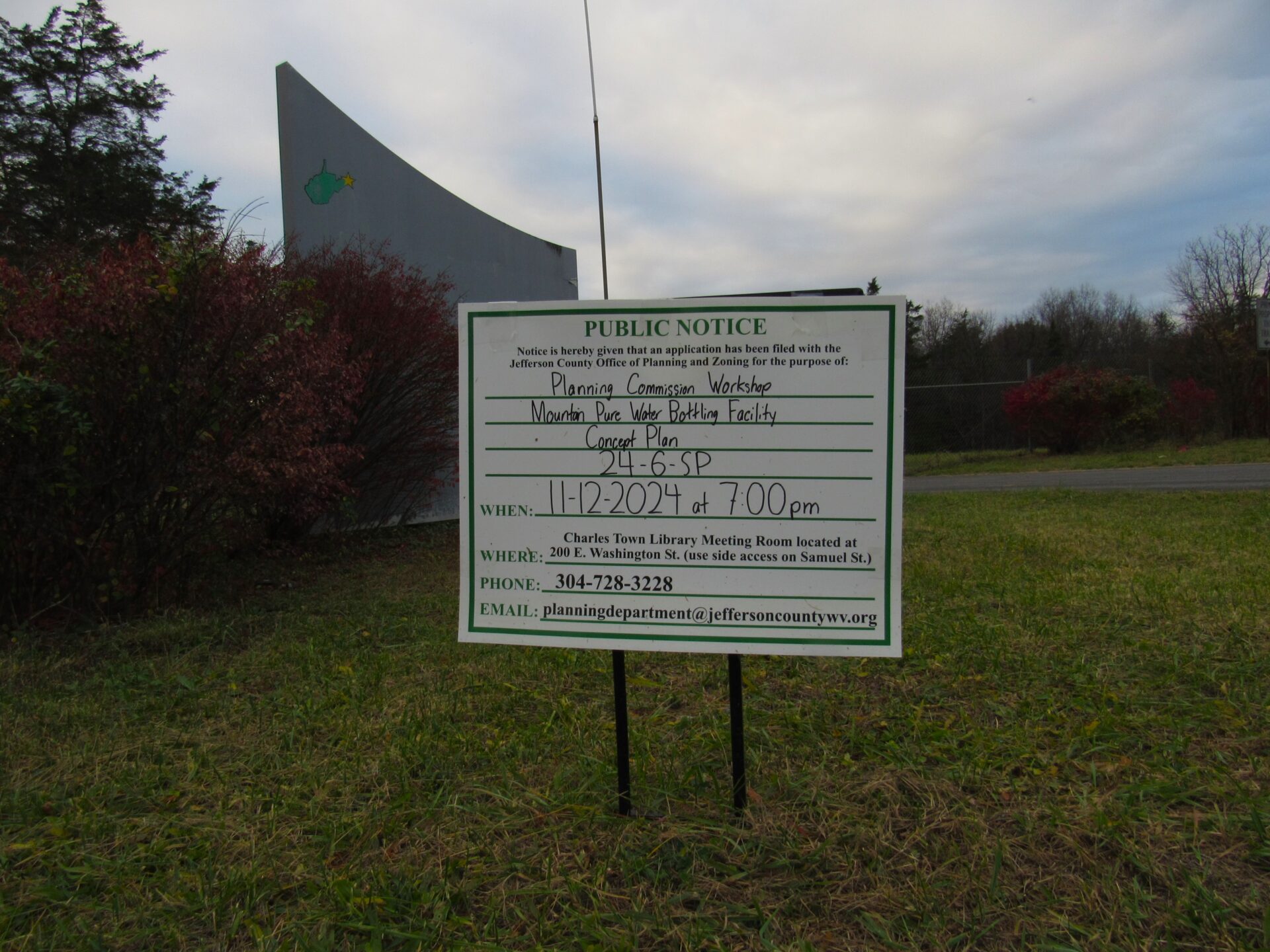Updated on Monday, April 21, 2025 at 3:07 p.m.
Developers seeking to build a water bottling facility in Jefferson County have taken their efforts to the courtroom, following a rejection from local officials.
Sidewinder Enterprises is a single-purpose development company that aims to build Mountain Pure Water Bottling Facility in the rural community of Middleway. After months of anticipation, the Jefferson County Planning Commission unanimously rejected the project March 12, arguing its concept plan did not comply with county zoning ordinances.
After the decision, a representative for Sidewinder told West Virginia Public Broadcasting by email they disagreed with the commission’s decision and would be “pursuing all options” to bring their project to life.
On April 10, Sidewinder filed a legal complaint in the Circuit Court of Jefferson County arguing the planning commission lacks the authority to reject their project, and instead should have granted them guidance on how to conform their concept plan to local and state regulations.
Additionally, Sidewinder disputes the terms of the planning commission’s rejection. Commissioners cited possible harm to historic sites in their reasoning for denying the project, but Sidewinder maintains that the project would not harm the historic preservation of Middleway.
In their complaint, Sidewinder lists the Jefferson County Planning Commission and each of its members as respondents. It urges the court to bar them from rejecting the Mountain Pure concept plan, and require them to compensate the company for related legal fees.
In an email provided through a media representative, Sean Masterson, managing partner for Sidewinder, declined to comment on this story, saying it would be “inappropriate for us to comment given the pending litigation.” A representative for the planning commission also declined to comment in an email to WVPB because the matter is “subject to pending litigation.”
Meanwhile, the lawsuit follows months of grassroots organizing from residents of Middleway and West Virginia’s Eastern Panhandle.
Residents have widely expressed concern that the project would result in water overuse or contamination, unsustainable truck traffic and degradation of local historic sites. The Middleway Historic District is listed on the U.S. National Register of Historic Places.
Concerns like these culminated in an eight-hour meeting stretching from March 11 to 12, when the planning commission voted to reject the project’s concept plan. During that meeting, 125 individuals delivered comments regarding the project proposal; 122 of them spoke in opposition to it.
View the circuit court legal complaint in full:
**Editor’s Note: This story was updated to note that the Jefferson County Planning Commission declined to comment.
